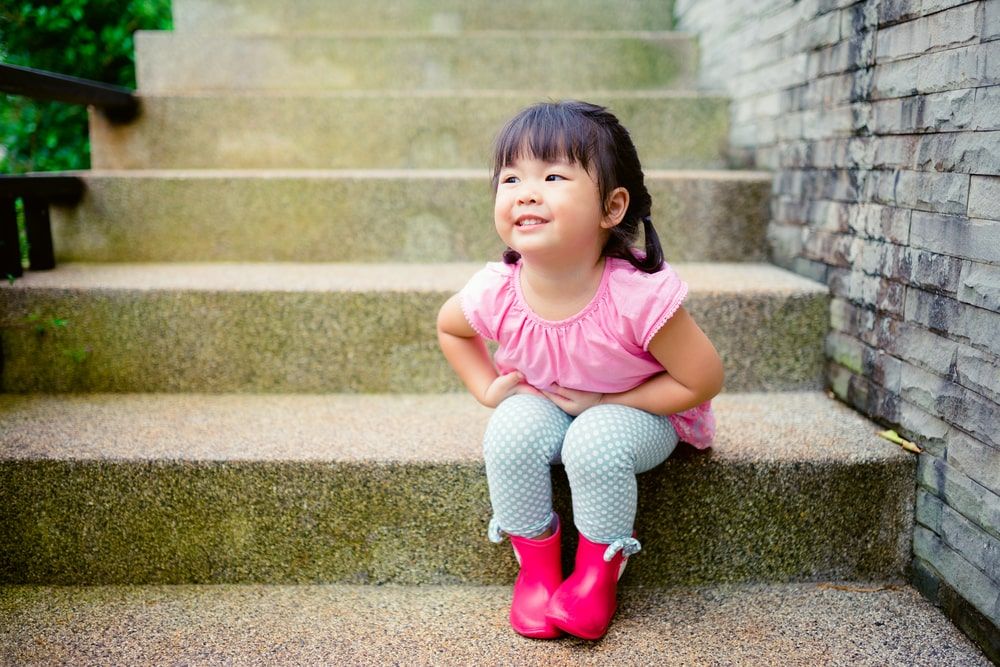It’s no secret that the road to success is often a winding journey, especially when you’re a part of an Asian family. But have you ever paused to ponder how Erikson’s Stages of Development unfurl within the rich tapestry of our unique cultural context? Well, you’re in for a thought-provoking exploration, as we take a deep dive into these developmental stages and uncover how they sculpt our remarkable journey.
Erikson’s Stages of Development in Asian Families
As members of Asian families, we are no strangers to the high expectations and the relentless pursuit of excellence that often define our upbringing. Our parents, guided by a sincere desire to provide us with the best, may nudge us toward early accomplishments right from the moment we enter this world. This early expectation to excel in the grand stage of life can have a profound impact, either fostering a sense of trust in our caregivers if their dreams align with our innate inclinations, or evoking mistrust if the pressure feels overwhelming.
In this blog, we’ll unravel how these stages of development influence our lives. We’ll traverse through the trials and tribulations of childhood, adolescence, and into adulthood, all while carrying the weight of our cultural heritage. The pursuit of success, the balance between personal aspirations and family expectations, and the enduring quest for fulfillment are themes that resonate deeply within our journey.
Stage 1: Trust vs. Mistrust – Infancy
In the vibrant tapestry of Asian families, the journey through Erikson’s stages of development begins on an exhilarating note right from infancy. As we enter this world, our parents often usher us into a world where achievement takes center stage. Guided by their unwavering desire to provide us with the best, they may gently nudge us toward early accomplishments. This early expectation to excel casts a profound influence, wielding the power to shape our sense of trust or mistrust.
When the dreams and aspirations of our caregivers harmonize with our innate inclinations, a deep sense of trust blooms. It’s a feeling that whispers to us, assuring us that we are supported, understood, and free to be our authentic selves. This trust forms the bedrock upon which we construct our futures. However, if the pressure to achieve seems overwhelming, it can plant the seeds of mistrust. Doubts may begin to sprout, questioning whether our caregivers truly have our best interests at heart or if we are mere pawns in their pursuit of success for us.
In this critical stage, parents hold the compass to guide their children through uncharted waters. It’s essential for them to provide a nurturing environment that strikes a harmonious balance between high expectations and emotional support. This equilibrium is the key to helping their children develop trust, not just in their caregivers, but also in themselves and others. It’s about sculpting a space where children can embark on their unique journey with the assurance that their parents are their allies, guiding and supporting them, rather than pushing and dictating their course.
Stage 2: Autonomy vs. Shame and Doubt – Toddlerhood
As we transition into the spirited realm of toddlerhood, marked by our resolute assertion of independence, the delicate tango between autonomy and shame takes center stage. In many Asian households, strict discipline and soaring expectations prevail, driven by the noble aspiration to nurture overachievers. However, this well-intentioned approach can sometimes inadvertently sow the seeds of doubt and shame in our young hearts, especially when we fall short of the towering standards set for us.
In Erikson’s stages of development, toddlerhood is characterized by the challenge of autonomy vs. shame and doubt. it’s of paramount importance for parents to champion autonomy. It’s about granting children the freedom to explore their surroundings, make choices, and assert their independence. This is the phase when kids are determined to dress themselves, feed themselves, and make their own decisions, even if the outcome occasionally involves mismatched socks or spilled milk.
But, in equal measure, maintaining an atmosphere where children do not bear the weight of shame for their inevitable stumbles is imperative. Autonomy must be complemented by understanding and unwavering support. Parents, in their pivotal role, are the lighthouses that help their children cultivate self-confidence and a profound sense of autonomy. This is achieved by offering guidance and encouragement, rather than wielding the whip of criticism or imposing unrealistic expectations.
In this stage, the golden rule is to “Let them explore and learn, and when they falter, extend a helping hand, not a reproachful one.”
Stage 3: Initiative vs. Guilt – Preschool Age
The preschool years in Asian families paint a canvas brimming with intensity, marked by relentless learning and unbridled exploration. Parents often act as enthusiastic cheerleaders, encouraging their children to take the reins and initiate exploration of new activities. However, this encouragement comes with a price tag. The fear of failure and the weight of guilt associated with not living up to their parents’ hopes can loom like a formidable mountain.
This stage is a pivotal crossroads in a child’s odyssey, where their natural curiosity and hunger to decipher the world are set ablaze. It’s imperative to craft an environment where children can experiment without the shadow of punitive guilt. This entails constructing a space where it’s not only acceptable but even celebrated to try, fail, and then muster the courage to try again. The worth of these young souls should never be tethered to the outcome.
Allowing children to take the lead in their ventures, whether it’s wielding paintbrushes, constructing imaginative structures, or soaking in knowledge, is the bedrock of fostering initiative. And when life takes an unexpected twist and things don’t unfurl as planned, it is the role of parents to provide solace and a silver lining. Failures are reframed as stepping stones, and the fires of curiosity continue to burn, propelling children forward with a relentless enthusiasm for learning.
Stage 4: Industry vs. Inferiority – Elementary School
As we step into the vibrant realm of elementary school, a pivotal stage unfolds, where the Asian overachiever within us truly comes to life. Here, we’re not just encouraged to excel academically, but also artistically and athletically, aligning with Erikson’s stages of development. The pressure to outperform our peers acts as a catalyst, igniting a profound sense of industry, motivating us to work tirelessly towards our goals. Yet, it’s a tightrope walk, for this very drive can also lead to the lurking shadows of inadequacy and inferiority if we happen to fall short of our lofty standards.
In Asian families, this phase is often marked by the pursuit of excellence in various domains. Parents strive to provide their children with a well-rounded education, nurturing an environment where hard work and achievement are celebrated. The idea of “saving face” and upholding the family’s reputation becomes a powerful driving force, further intensifying the pressure to succeed.
During this stage, parents play a pivotal role in maintaining the equilibrium between motivation and reassurance. It’s crucial to acknowledge that success is not solely measured by accolades and achievements, but equally by personal growth and the development of a strong work ethic. Encouraging children to chase their interests and passions while emphasizing the importance of resilience and effort can help them cultivate a healthy sense of industry without succumbing to feelings of inferiority.
Stage 5: Identity vs. Role Confusion – Adolescence
Navigating the turbulent waters of adolescence in Asian families can be a complex odyssey. This is the stage where we grapple with the development of our individual identities while bearing the weight of our rich cultural heritage. The struggle to balance our personal aspirations with our family’s expectations becomes a prevailing theme during this pivotal period.
Asian families often place a strong emphasis on academic success and the pursuit of promising career prospects. As teenagers, we’re expected to excel academically while simultaneously navigating the stages of development in psychology’s intricate web of cultural norms and expectations, encompassing relationships, filial piety, and societal roles. This delicate balancing act can often lead to identity confusion, as we endeavor to find our unique place within the intersection of tradition and personal growth.
In this stage, open communication and understanding from both parents and children become the cornerstones of progress. It’s a time for self-discovery and self-expression, an era where creating a supportive environment for adolescents to explore their interests, define their own values, and make informed choices takes precedence. It’s about crafting a delicate balance that respects cultural heritage while allowing ample room for individuality to flourish.
Stage 6: Intimacy vs. Isolation – Young Adulthood
In many Asian cultures, the weighty expectation to form meaningful relationships and embrace the bonds of matrimony is strong. Balancing these expectations with personal growth and career aspirations can be a tightrope walk, and the looming fear of isolation can cast a significant shadow. Young adults often find themselves navigating the precarious path of meeting traditional familial expectations while pursuing their own ambitions.
This stage accentuates the need for a harmonious equilibrium, a path that allows individuals to explore intimate relationships while steadfastly pursuing personal goals, all without feeling the suffocating pressure to conform to societal norms. It’s about recognizing that intimacy and personal development can coexist in a harmonious symphony.
Young adults need the unwavering support and understanding of their families as they navigate this delicate dance. Open conversations about relationships, career choices, and personal aspirations become their guiding stars, helping them make choices that align with their deeply held values and desires while remaining deeply respectful of their cultural heritage.
Stage 7: Generativity vs. Stagnation – Middle Adulthood
As middle adulthood dawns, many Asian overachievers are seized by an unwavering desire to give back to their families and communities. Achieving financial success and supporting their parents is often viewed as a continuation of the sacred tradition of filial piety. Erikson’s stages of development emphasize that balancing these formidable responsibilities with personal fulfillment is of the essence in this stage, ensuring that individuals do not feel trapped in a state of stagnation or overwhelmed by their obligations.
In Asian families, the concept of generativity often extends beyond providing for one’s immediate family, encompassing a deep commitment to the welfare of the extended family and the broader community. This is the developmental stages and phases where individuals often assume caregiving roles for their parents and take up the mantle of mentors for the younger generation.
Striking a harmonious balance between these noble responsibilities and personal growth is paramount. Middle adulthood serves as an opportunity to seamlessly weave together the pursuit of success with a profound sense of fulfillment derived from giving back to the community and nurturing the next generation.
Stage 8: Ego Integrity vs. Despair – Late Adulthood
In the twilight years, the Asian family dynamic often finds itself at a crossroads, where the contemplation of a life well-lived intersects with reflections on unmet goals. The desire for a tranquil and harmonious existence can at times be overshadowed by the relentless pursuit of success. It’s imperative to kindle a sense of contentment and accomplishment in late adulthood, where individuals can strike a delicate balance between the milestones of their lives and the pursuit of personal fulfillment.
Late adulthood is a tapestry of reflection, an embrace of one’s life journey. It’s a phase where individuals can discover contentment in their achievements and bask in the wisdom that time bestows. Harmonizing this with the desire for continual personal growth and the relentless pursuit of happiness is an intricate dance.
In Asian families, the creation of an environment where individuals in late adulthood can gaze back on their lives with a profound sense of fulfillment and acceptance becomes paramount. Encouraging the pursuit of personal happiness and well-being, devoid of the relentless chase for success, becomes the path to ensure that late adulthood is a chapter filled with peace and contentment.
Get to know the richness of Erikson’s Developmental Stages within Asian families and forging pathways toward personal growth, understanding, and familial cohesion – reach out today!
Navigating Erikson’s stages of development within Asian families can be intricate, but at Uncover Mental Health Counseling, we’re committed to helping you navigate each phase with clarity and insight. Here’s how you can begin your journey:
- Book a Free 15 Min Consultation: Reach out to Uncover Mental Health Counseling to commence your exploration with a complimentary consultation call. Let’s lay the foundation for your journey ahead and shed light on how Erikson’s stages intersect with your family’s experiences.
- Meet with a NYC Psychotherapist: Collaborate with one of our culturally attuned NYC therapists for a meaningful session tailored to your specific stage of development within your Asian familial context. Together, we’ll delve into the unique challenges and growth opportunities each stage presents.
- Get to Know Yourself Better: Prepare to immerse yourself in a supportive environment where your cultural heritage is embraced and celebrated. Our team provides guidance, encouragement, and a range of resources designed to assist you as you navigate Erikson’s stages within the framework of your Asian family life.





































